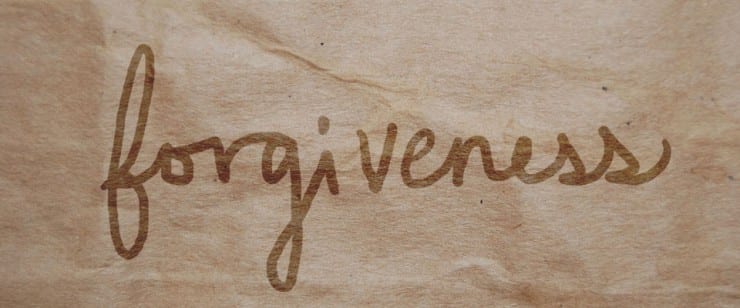
After the murder of his mother in 1996, Everett Washington, Jr. began thinking about how the practice of forgiveness relates to justice, faith, and virtue—the theme of his work. While he forgave the murderer, as did his brother and sister, the emotional fallout was devastating, and in 2005, his brother committed suicide.
In addition to studying forgiveness of others, Everett drew on his feelings of guilt and self-condemnation and added the study of self-forgiveness to his interests. His mission is to help individuals (every heart), couples and families (every home), and even communities and countries (every homeland) forgive.
Deciding to forgive is often an overwhelming process. Washington created the REACH format to help navigate the emotions and choices behind forgiveness. They are:
R: Recall the hurt.
E: Empathy helps replace negative emotions with positive emotions. A: Altruistic gifts of forgiveness.
C: Commit to emotional forgiveness.
H: Hold onto forgiveness.
We often respond to being hurt by blaming God, ourselves, and others. We lose sight of the fact that we have options. We can see justice done, turn it over to God, practice forbearance with toleration, accept and move on, and forgive. Something to keep in mind is that forgiveness is not forbearance, condoning, reconciling, forgetting, justifying, getting justice, or excusing.
Washington separates forgiveness into decisional and emotional forgiveness. Decisional forgiveness is an intentional statement of one’s intent to forsake revenge or avoidance but to treat the person as a valuable and valued person. Deciding to forgive allows for positive emotions such as empathy, sympathy, compassion, agape love, and romantic love.
However, we might decide to forgive and still feel a complex combination of negative emotions such as resentment, bitterness, hostility, hatred, anger, and fear. This dissonance is emotional UNforgiveness. Emotional forgiveness replaces negative unforgiving emotions with other positive-oriented emotions by giving an altruistic gift to the one who hurt you.
Emotional forgiveness emphasizes sympathy for the one who hurt you, allowing space for compassion and love. It seeks to build a humble stance that we all harm each other, and if we expect grace from others, we should grant that grace to others. This open heart allows God to work within us and promote forgiveness and healing.
If you find yourself still resistant to forgiveness, consider this analogy:
I want to build a pillar of concrete to support my ceiling. My strategy is this. Bring a concrete mixer in here and pour concrete on the floor, willing it to shape itself into a pillar. What do you think of my strategy?
Right, it won’t succeed. How would I succeed at building a pillar? First, I build a wooden form in the shape of a pillar. Then I pour concrete inside it, giving it time to harden. Finally, I take down the form and reveal my perfect pillar. When finished, I can throw the form away or save it for building other pillars.
This analogy models what often happens when trying to forgive. Often, we attempt to will ourselves into forgiveness. Usually, this doesn't work. Instead, we can decide to forgive, and follow steps to REACH emotional forgiveness.
Decisional forgiveness changes our emotions, yielding a total forgiveness experience. Thousands of people have learned and successfully applied this method. The method itself is not special. It is just a wooden form. God pours in the real substance - the concrete - that makes lasting changes in our inner experience of forgiveness.
Forms are important. But, God is the one who does the real work.
If you are interested in learning more about REACH forgiveness and becoming a more forgiving person, join the REACH forgiveness group beginning March 12th. For more information, contact Mandi McDowell, LPC-A, LMHC via email at [email protected] or call/text 806/614-4425.
Forgiveness is not forgetting. Forgiveness is healing.
"And be ye kind one to another, tenderhearted, forgiving one another, even as God for
Christ's sake hath forgiven you." Ephesians 4:32
Reach Forgiveness of Others — Everett Worthington (evworthington-forgiveness.com)
About the Author:
Mandi McDowell, LPC-A, CMHC is a dually licensed counselor in Texas and New Mexico. She graduated from B.H.Carroll Theological Seminary where she received a Masters of Art in Counseling. She specializes in online sessions for ages 11 and older and has specialized training from a Christian perspective. Additionally, Mandi works with clients from all walks of life regardless of their religious/spiritual beliefs.

 RSS Feed
RSS Feed